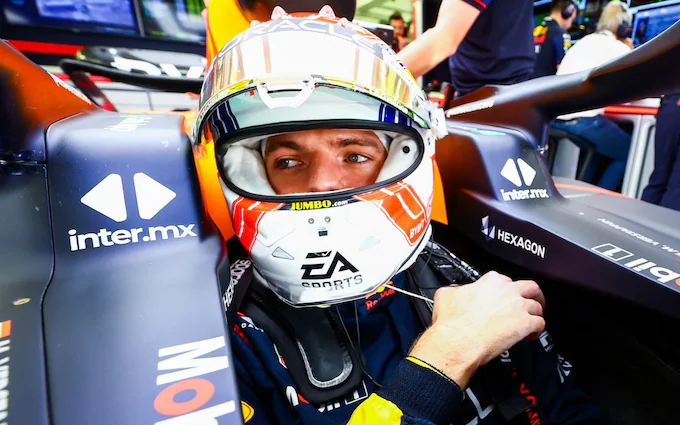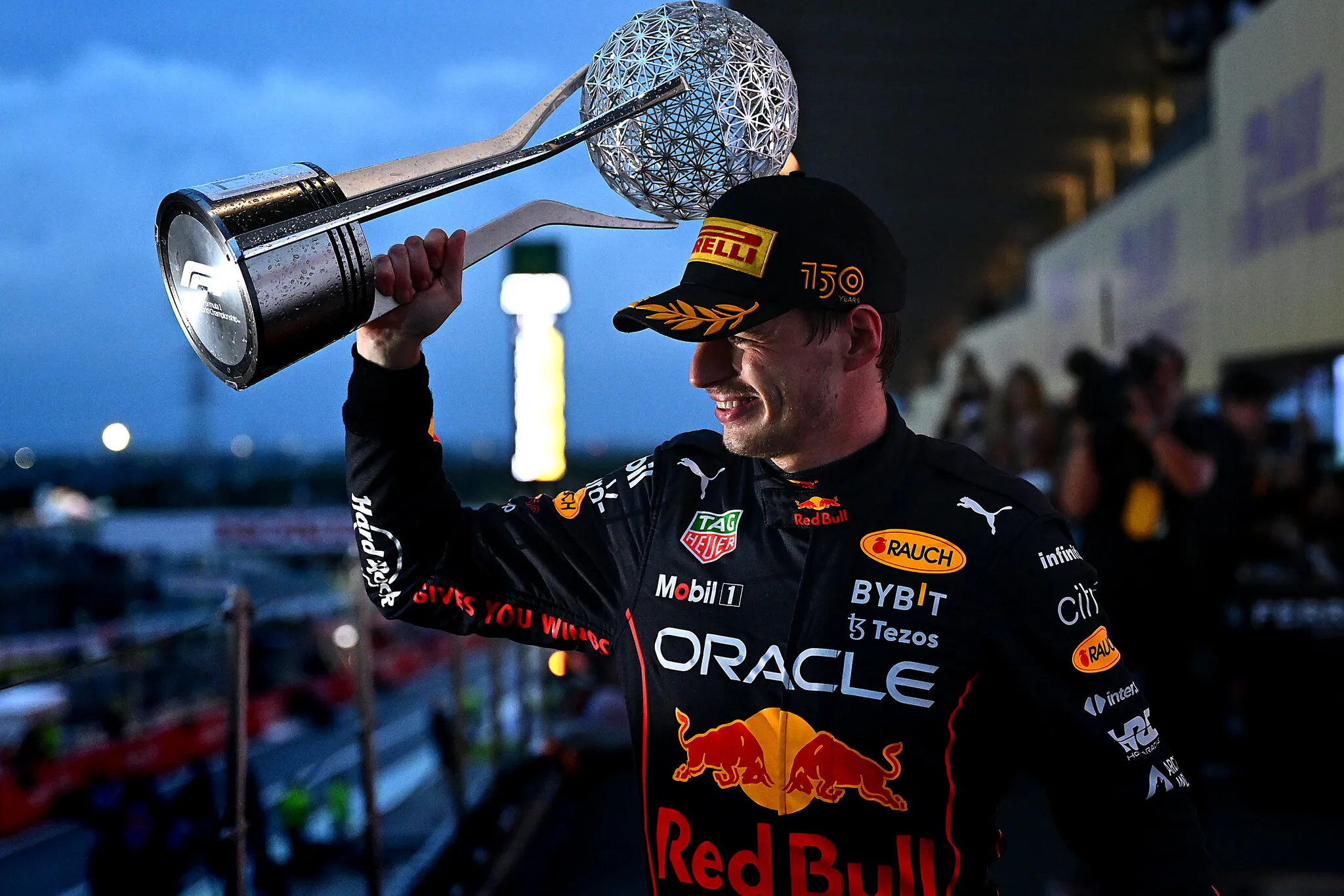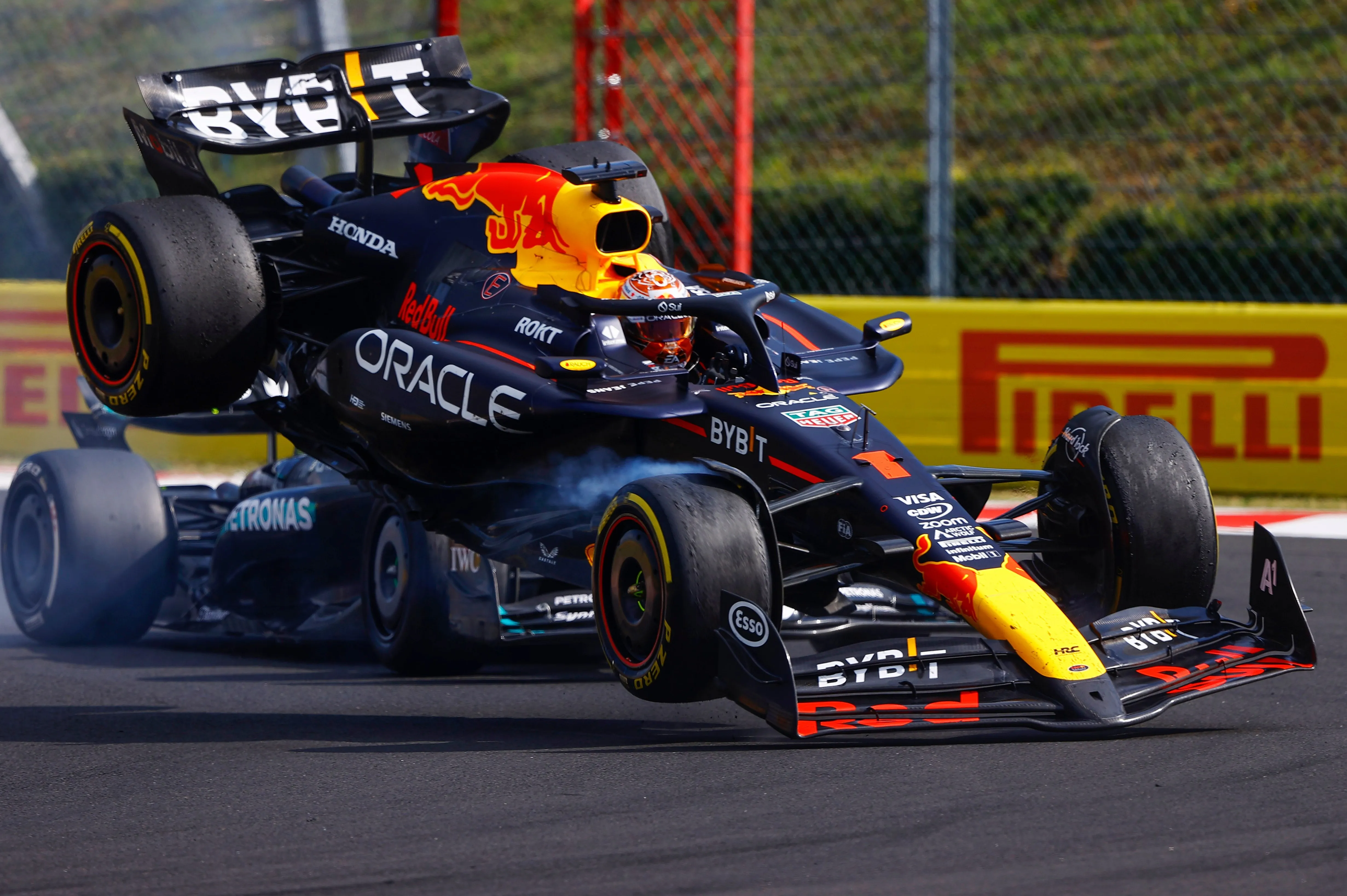

Verstappen’s Driving Style: A Necessary Evil for F1 Success
Few drivers in Formula 1 history have divided opinion like Max Verstappen. To some, he is a racing genius, a driver whose aggression and relentless pace have redefined what it means to be a champion. To others, he is a dangerous competitor, one who flirts with the limits of fairness in his pursuit of victory.
But one thing is undeniable—his driving style works. Whether you love or hate it, Verstappen’s approach to racing has made him one of the most dominant figures in modern F1.

The question remains: Is Verstappen’s aggressive driving a necessary evil for success in Formula 1, or is it simply a style that the sport has yet to fully control?
The Birth of a Ruthless Racer
A Young Prodigy with a Point to Prove
From the moment Max Verstappen arrived in Formula 1 at just 17 years old, he made it clear that he wasn’t here to simply participate—he was here to dominate.
His first full season with Toro Rosso (now Visa Cash App RB) in 2015 showed flashes of brilliance, but it was his shocking mid-season promotion to Red Bull Racing in 2016 that truly announced his arrival. His maiden win at the Spanish Grand Prix made him the youngest race winner in F1 history, but it wasn’t just the victory that caught the world’s attention—it was how he did it.
Verstappen’s style was already apparent:
-
Uncompromising on overtakes – If there was a gap, he would go for it, no matter the risk.
-
Aggressive defensive moves – He wouldn’t just defend his position; he would make it nearly impossible for others to pass.
-
A fearless approach in wet conditions – The 2016 Brazilian Grand Prix was a prime example, where he outclassed the field with his masterful control on a soaked track.
It was clear that Verstappen wasn’t just another young talent—he was a different breed of racer altogether.
The Infamous “Verstappen Rule”
His aggressive defensive tactics quickly caught the attention of rival drivers and race officials. In 2016, Verstappen’s tendency to make last-moment moves under braking led to the introduction of what became known as the “Verstappen Rule”—a guideline aimed at preventing dangerous defensive actions.
But did it change Verstappen’s approach? Not in the slightest.
His ability to push the rules to their absolute limit became one of his greatest strengths. He wasn’t just fast—he was unpredictable, and unpredictability in F1 is a weapon.
The Evolution of an Aggressive Champion
The 2021 Title Fight – Chaos, Controversy, and Glory
Verstappen’s all-or-nothing racing style reached its peak in 2021, during his legendary championship battle with Lewis Hamilton.
That season, Verstappen wasn’t just aggressive—he was relentless. Every wheel-to-wheel moment with Hamilton felt like a battle for supremacy, and their clashes defined one of the most thrilling seasons in F1 history.
Some of the most controversial moments included:
-
British Grand Prix (Silverstone Crash) – A high-speed collision with Hamilton at Copse corner sent Verstappen into the barriers at 51G. The debate over who was at fault divided the paddock and fans worldwide.
-
Italian Grand Prix (Monza Incident) – Another clash, this time with Verstappen’s car landing on top of Hamilton’s, further fueled their intense rivalry.
-
Brazilian Grand Prix (Interlagos Battle) – Verstappen’s aggressive defense against Hamilton forced him off the track, sparking heated debates about what was considered fair racing.
-
Abu Dhabi Grand Prix (The Final Showdown) – The now-infamous race where Verstappen clinched the title in dramatic fashion, benefitting from a controversial race director decision.
Despite the controversy, Verstappen had done what every great champion must do—push the limits until the sport itself reacts.
But did his aggressive style cross the line, or was it simply the price of victory?
2022 and Beyond – Mastering Controlled Aggression
Following his first title, Verstappen refined his approach. In 2022 and 2023, he was no longer just a fearless attacker—he became an unstoppable force.

His aggressive style remained, but now it was coupled with precision, patience, and strategic intelligence. He wasn’t just a fighter anymore—he was a complete driver, dominating the sport in a way not seen since Schumacher’s Ferrari era.
His incredible run of victories and record-breaking performances showed that his driving style wasn’t just about brute force—it was about adaptation, evolution, and the unshakable belief that F1 is a sport of warriors, not diplomats.
Is Verstappen’s Style a Necessary Evil?
F1’s History of Ruthless Champions
Verstappen isn’t the first driver to use aggression as his greatest weapon. Some of F1’s greatest champions built their legacies on a similar refuse-to-lose mentality:
-
Ayrton Senna – Known for his ultra-aggressive style, Senna once admitted, “If you no longer go for a gap that exists, you’re no longer a racing driver.”
-
Michael Schumacher – Ruthless in his pursuit of victory, Schumacher had multiple controversial moments, including his infamous collisions with Damon Hill (1994) and Jacques Villeneuve (1997).
-
Fernando Alonso – A master of pushing the rules, Alonso has built a career on making aggressive yet brilliant racecraft decisions.
Verstappen is simply continuing a long tradition of champions who refuse to be passive. But in today’s era of F1, where safety concerns and strict regulations shape the sport, does his driving style belong?
The Divide: Genius or Danger?
Verstappen’s approach has created a clear divide in opinion:
-
Supporters argue that F1 needs fighters. The sport was built on aggression and risk-taking, and Verstappen brings back the raw, unfiltered racing that fans crave.
-
Critics claim that his style pushes the limits too far. Some believe his aggressive defending and overtaking tactics create unnecessary dangers that could lead to serious crashes.
But perhaps the real answer lies somewhere in the middle. Verstappen’s style is aggressive, yes—but it is also calculated, intelligent, and brutally effective.
The Price of Greatness
So, is Verstappen’s driving style a necessary evil?
The truth is, in Formula 1, no one remembers the passive drivers. Champions aren’t made by playing it safe—they are forged in battle, in controversy, in the moments where they decide that they will not yield, no matter what.
Verstappen’s career is still unfolding, but one thing is clear: he is not here to make friends. He is here to win.
And in a sport where the difference between legend and forgotten talent is measured in milliseconds, maybe that’s exactly the kind of driver Formula 1 needs.
Love him or hate him, Max Verstappen has changed F1 forever. And as long as he keeps winning, his aggressive style will remain not just a choice—but a necessity.
What do you think? Is Verstappen’s aggressive driving a necessary evil for F1 success, or is it pushing the sport too far?
Let the debate begin.


















